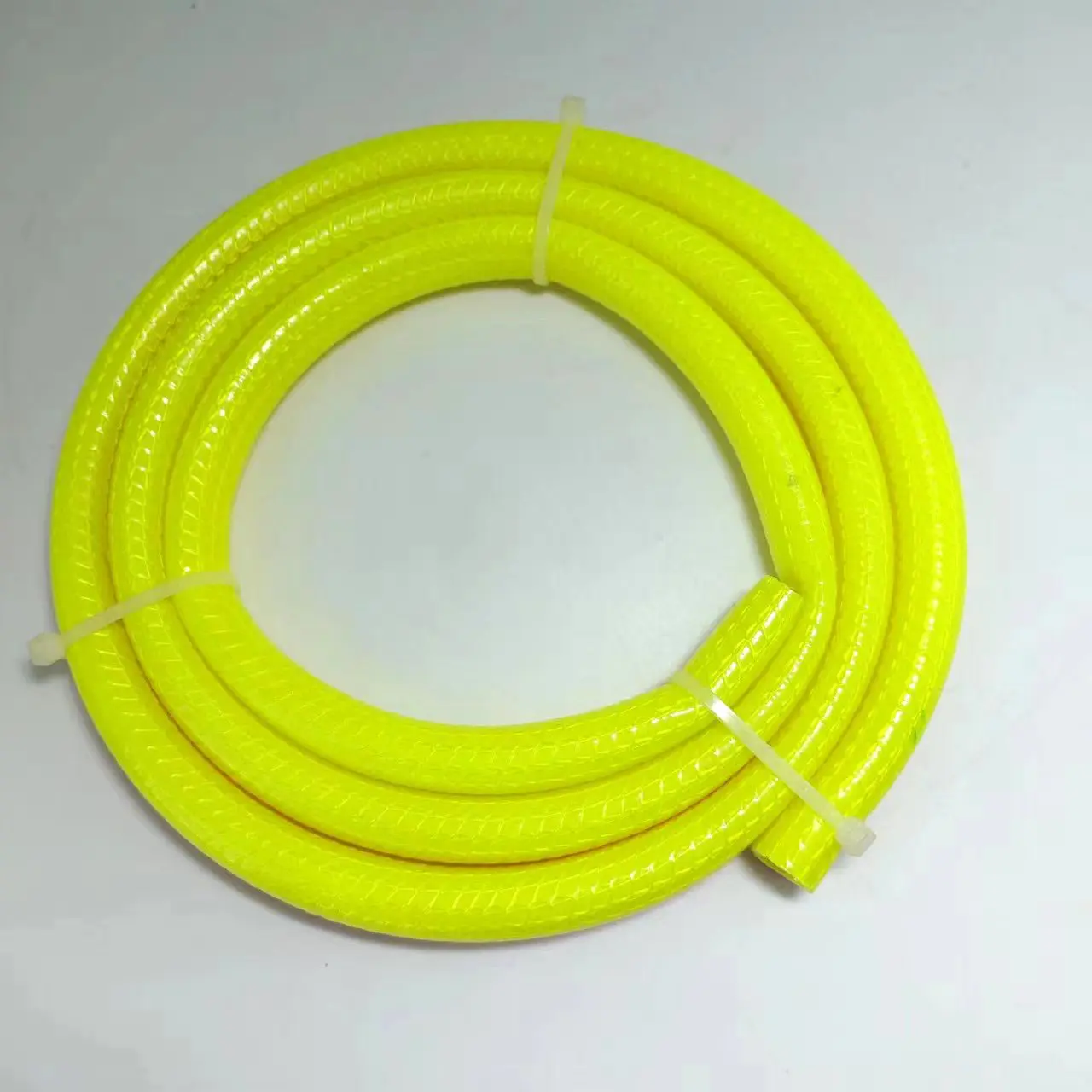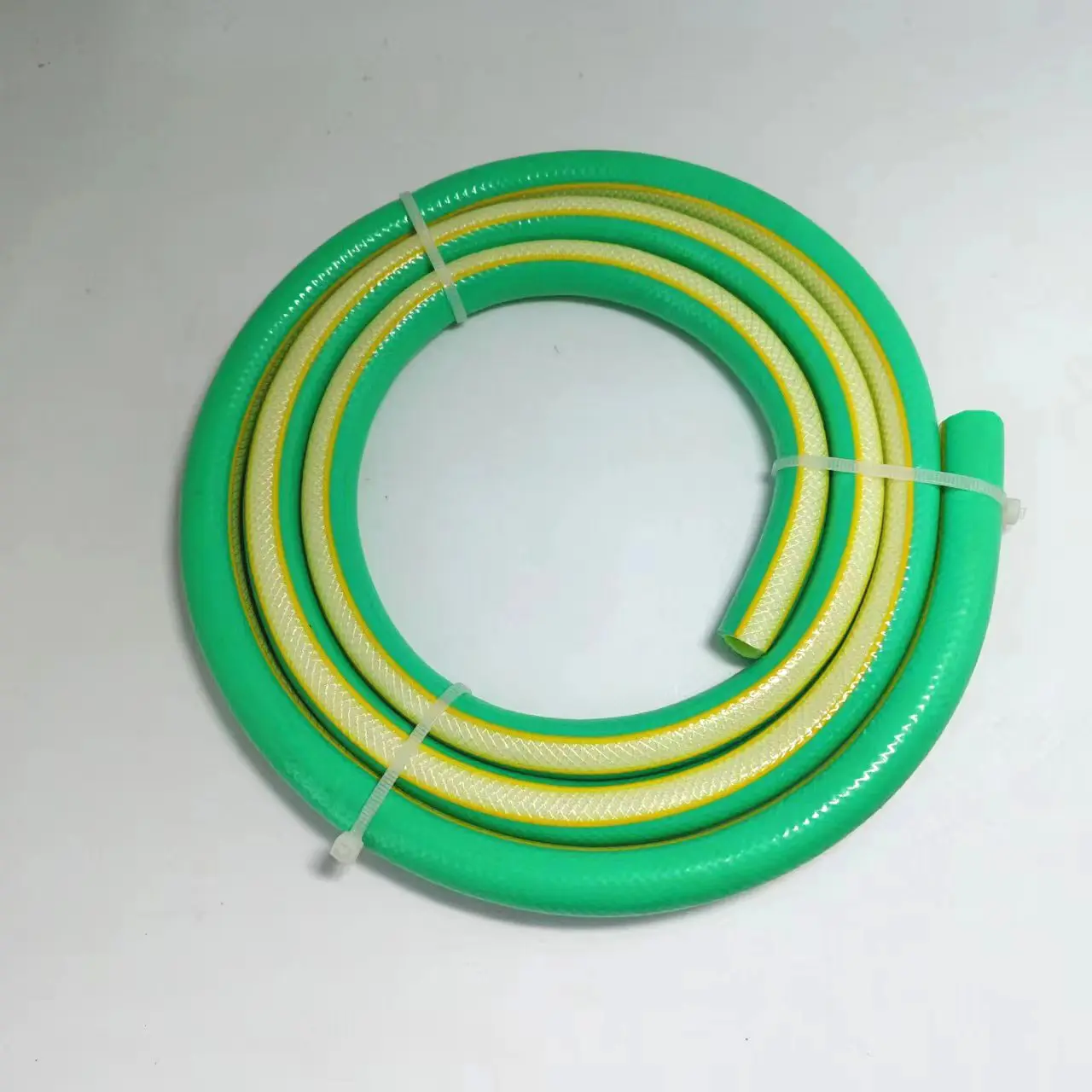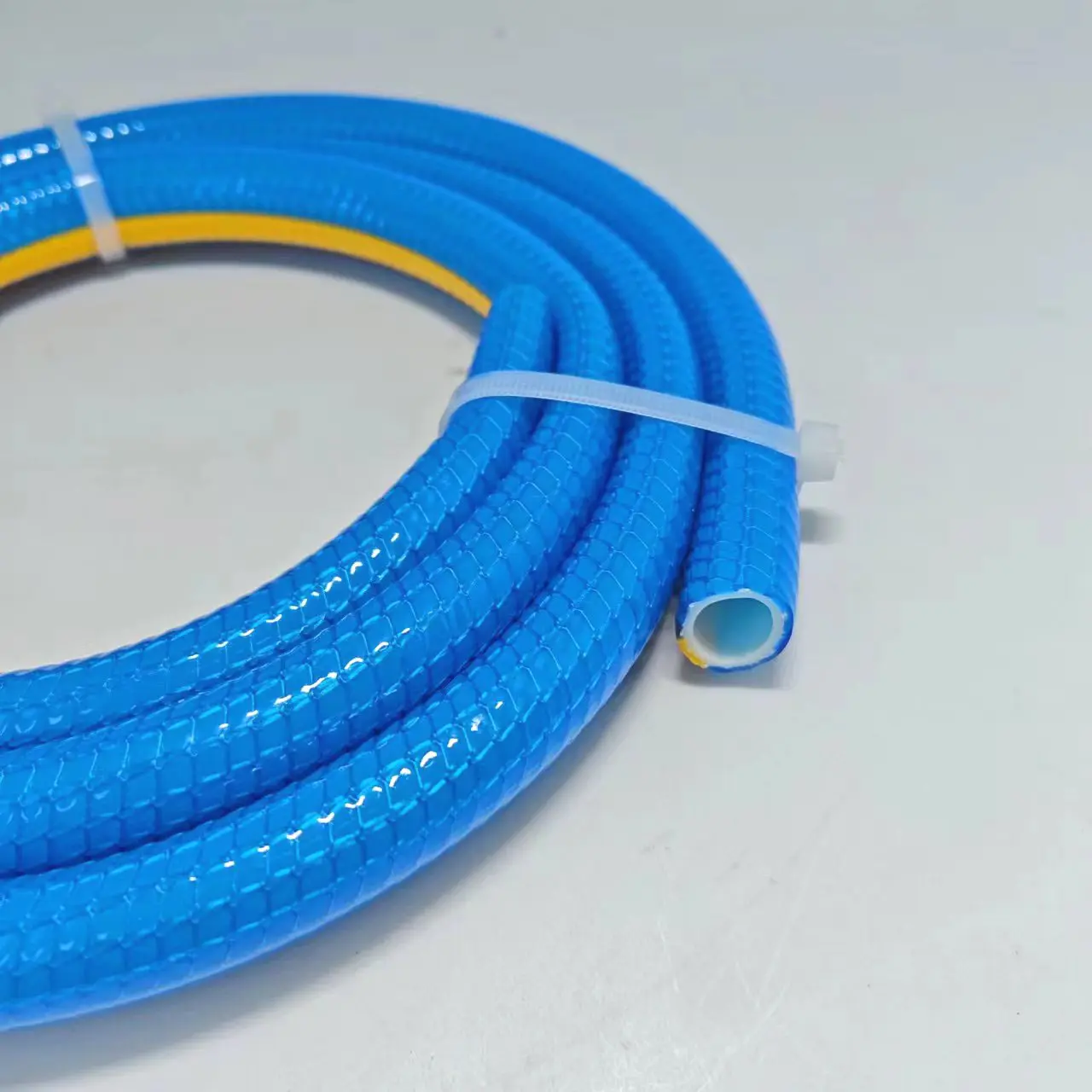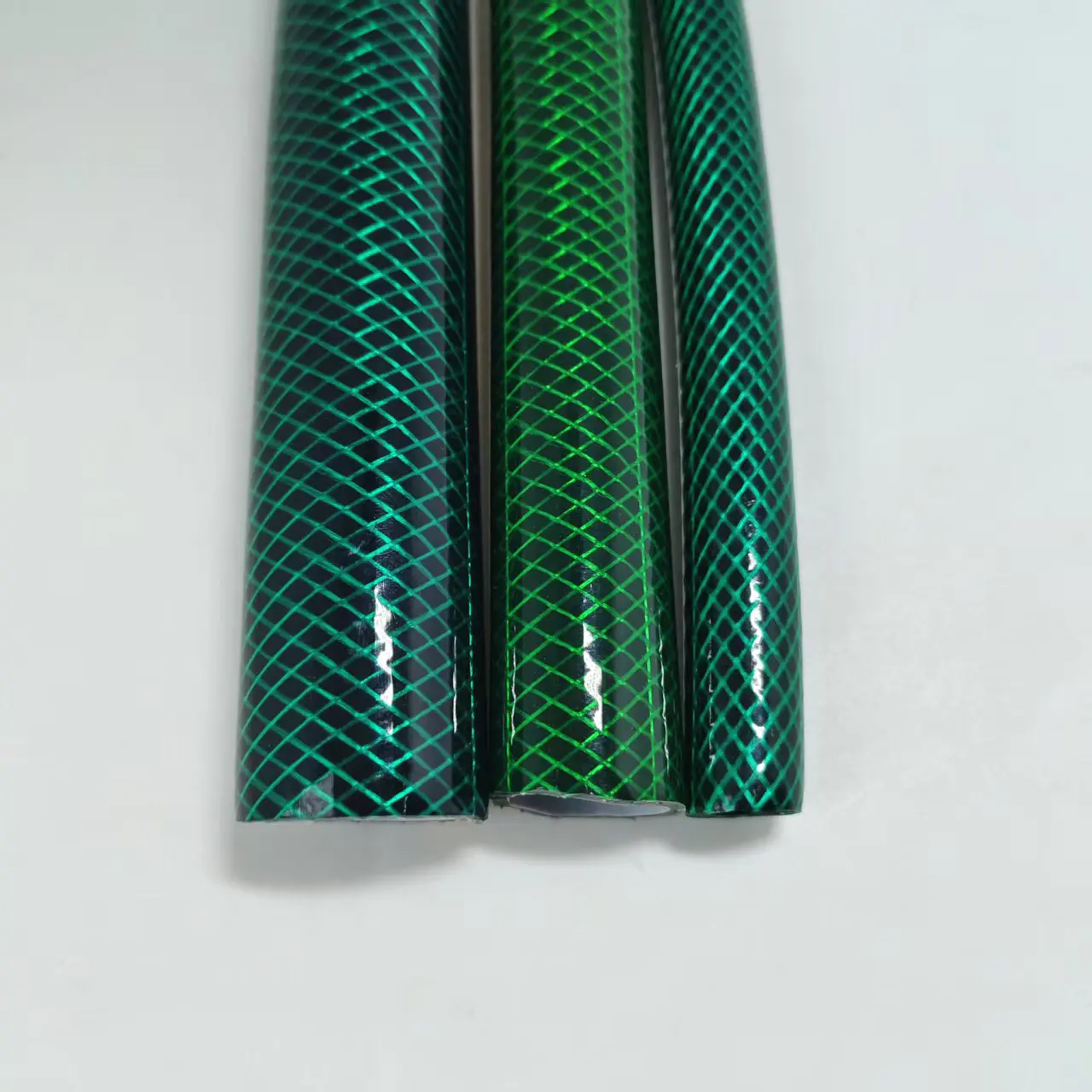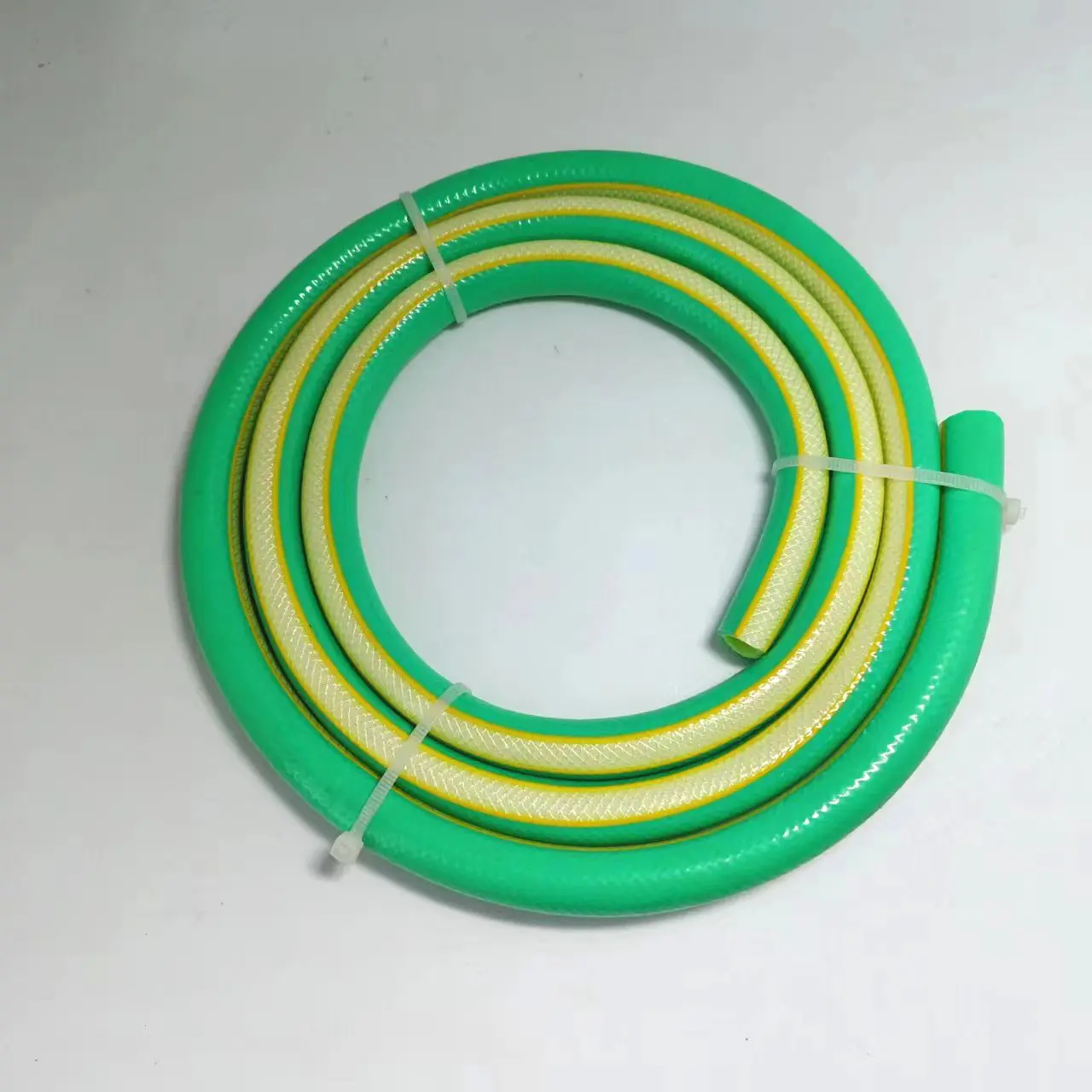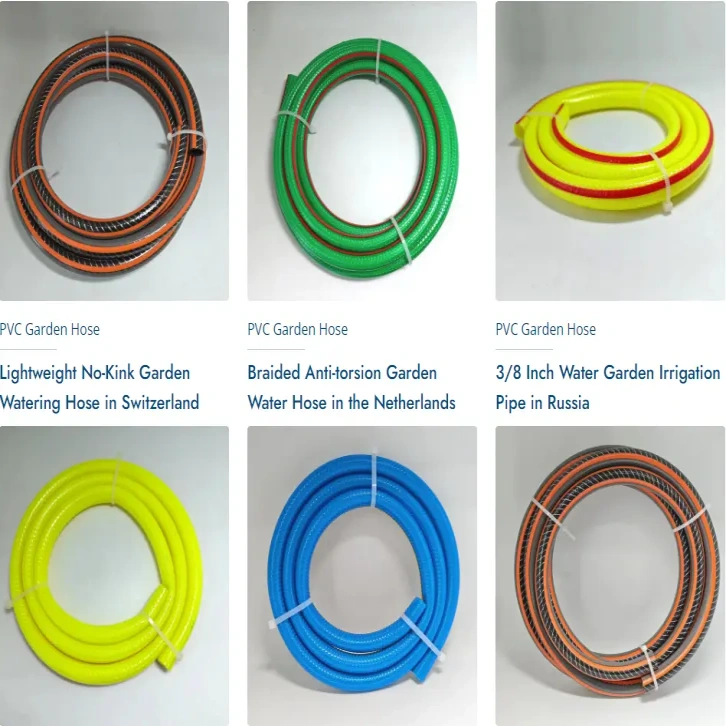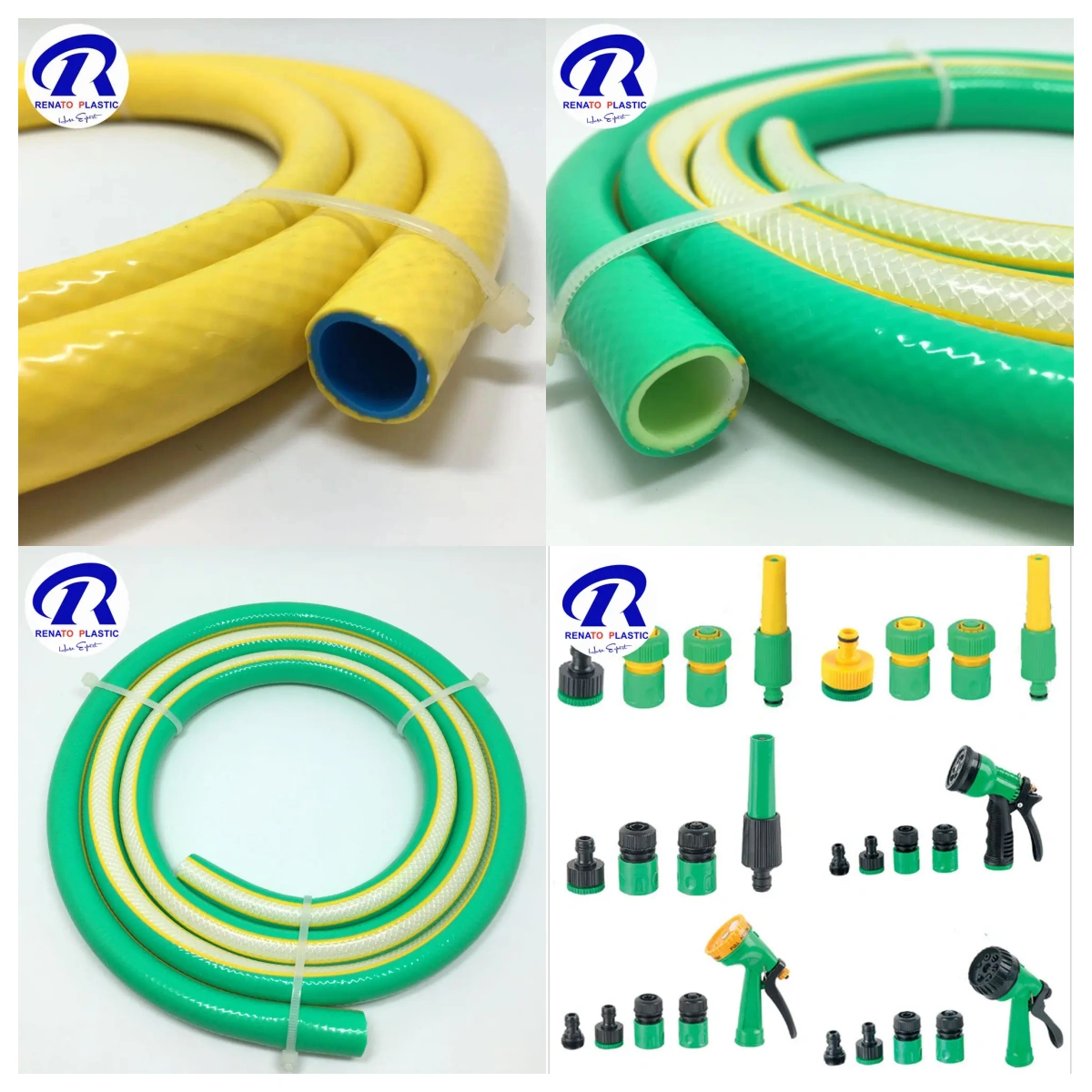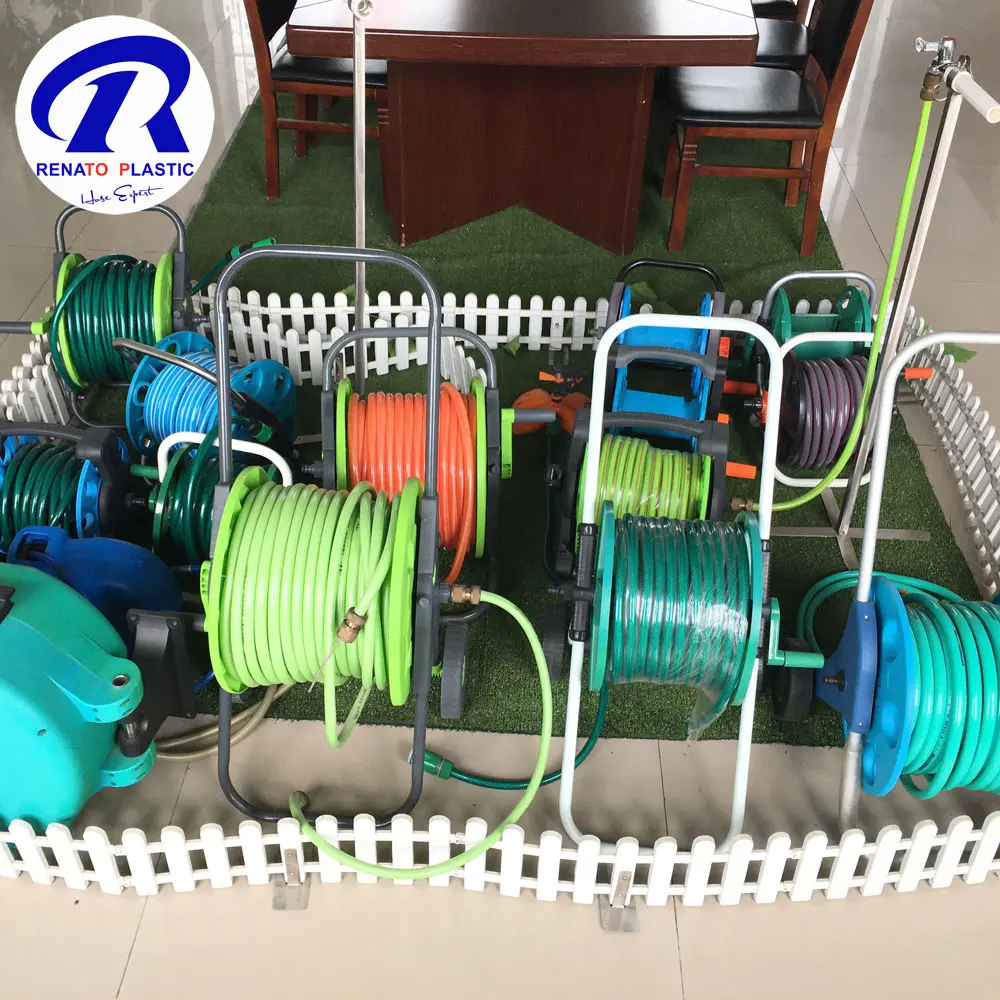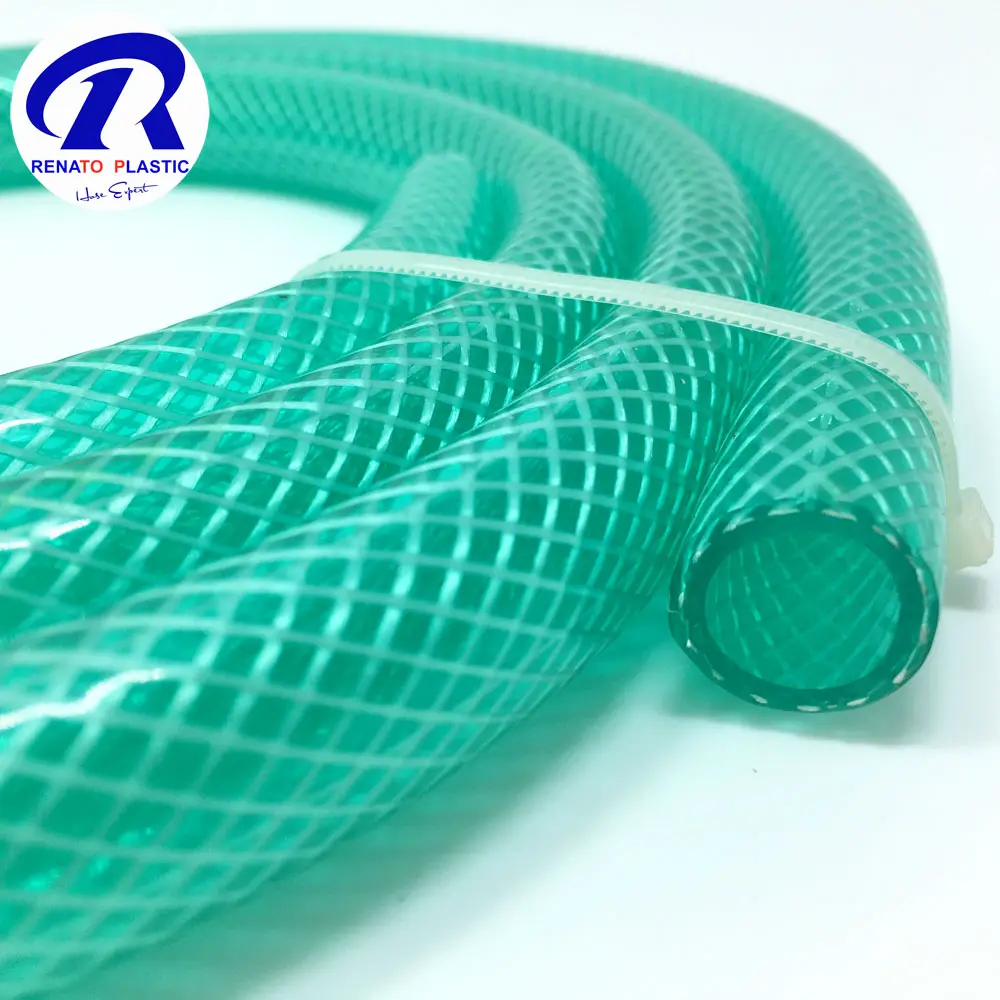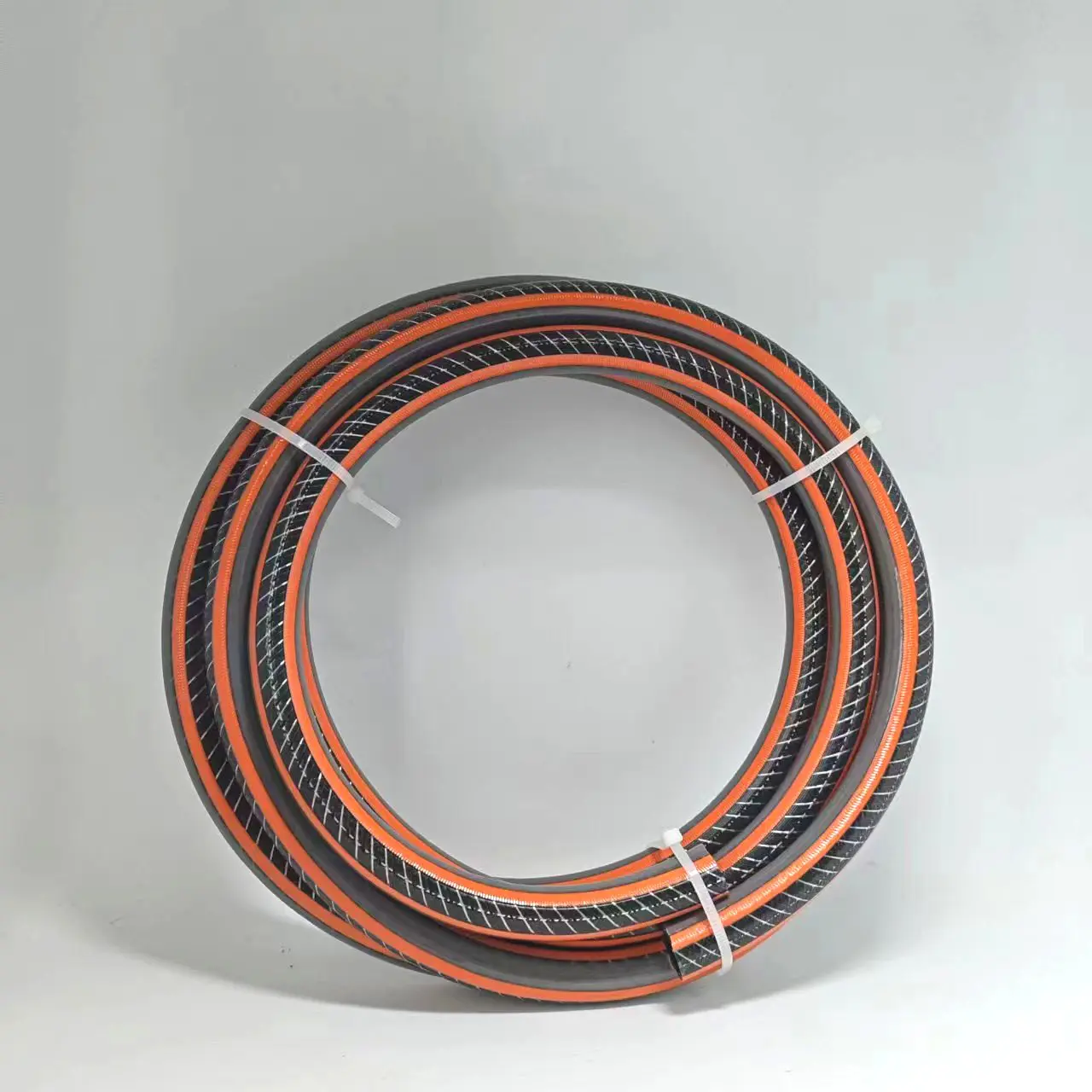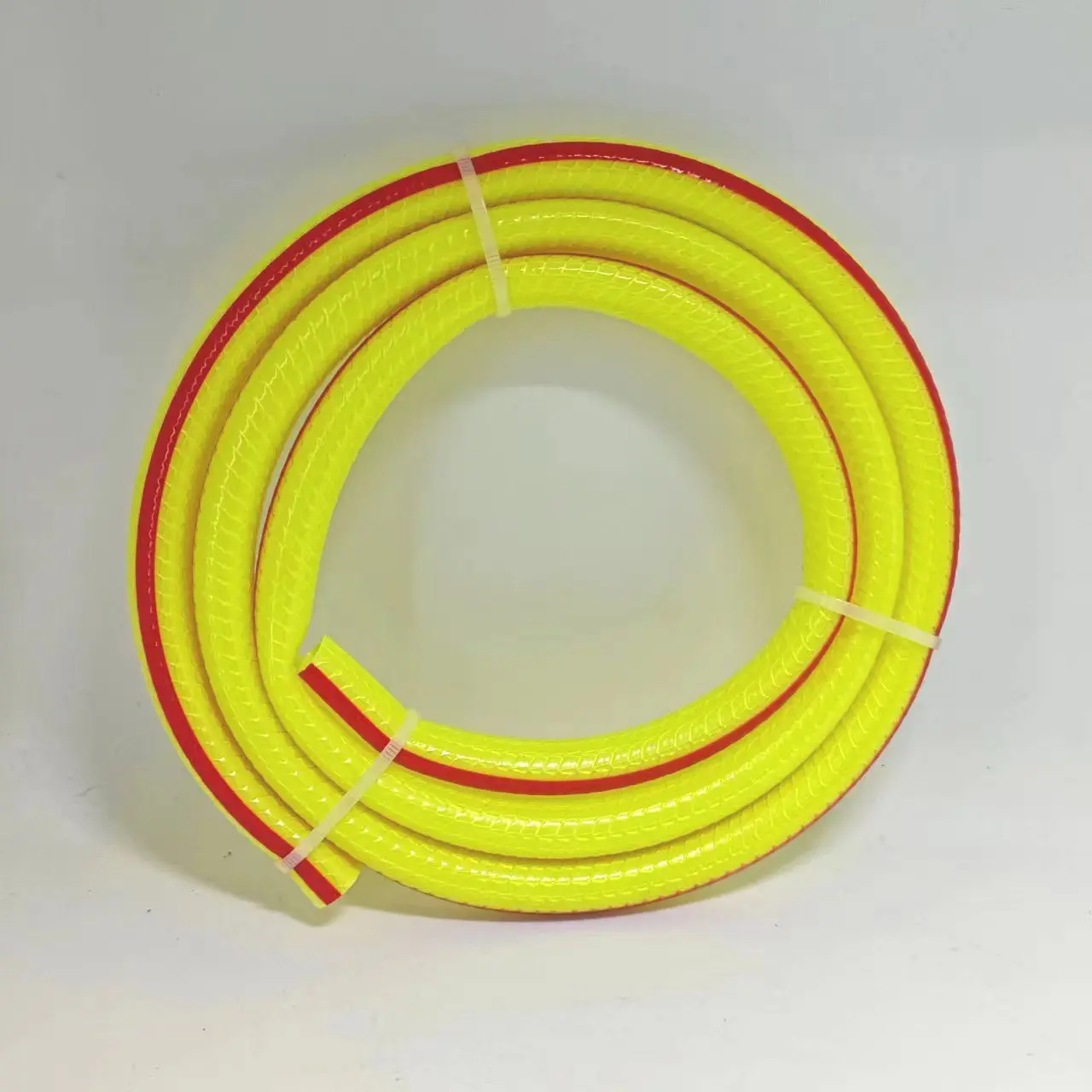Introduction to PVC Garden Hoses
PVC (polyvinyl chloride) garden hoses are flexible plastic hoses primarily used for watering home gardens, washing cars, and cleaning. Compared to rubber or reinforced hoses, PVC hoses are lighter, more affordable, and suitable for everyday light-duty use.
In Saudi Arabia, where the climate is extremely hot, hoses need to have a certain level of heat resistance. PVC hoses maintain good flexibility in high temperatures, but prolonged exposure to intense sunlight may accelerate aging. Therefore, it is recommended to store them in a shaded area when not in use to extend their lifespan.
Additionally, Saudi households often have large yards or gardens, and the lightweight nature of PVC hoses makes them easy to drag and store, especially for women or elderly users. Given Saudi Arabia’s strict water management policies, the efficient water delivery of PVC hoses also makes them a practical choice for household irrigation.
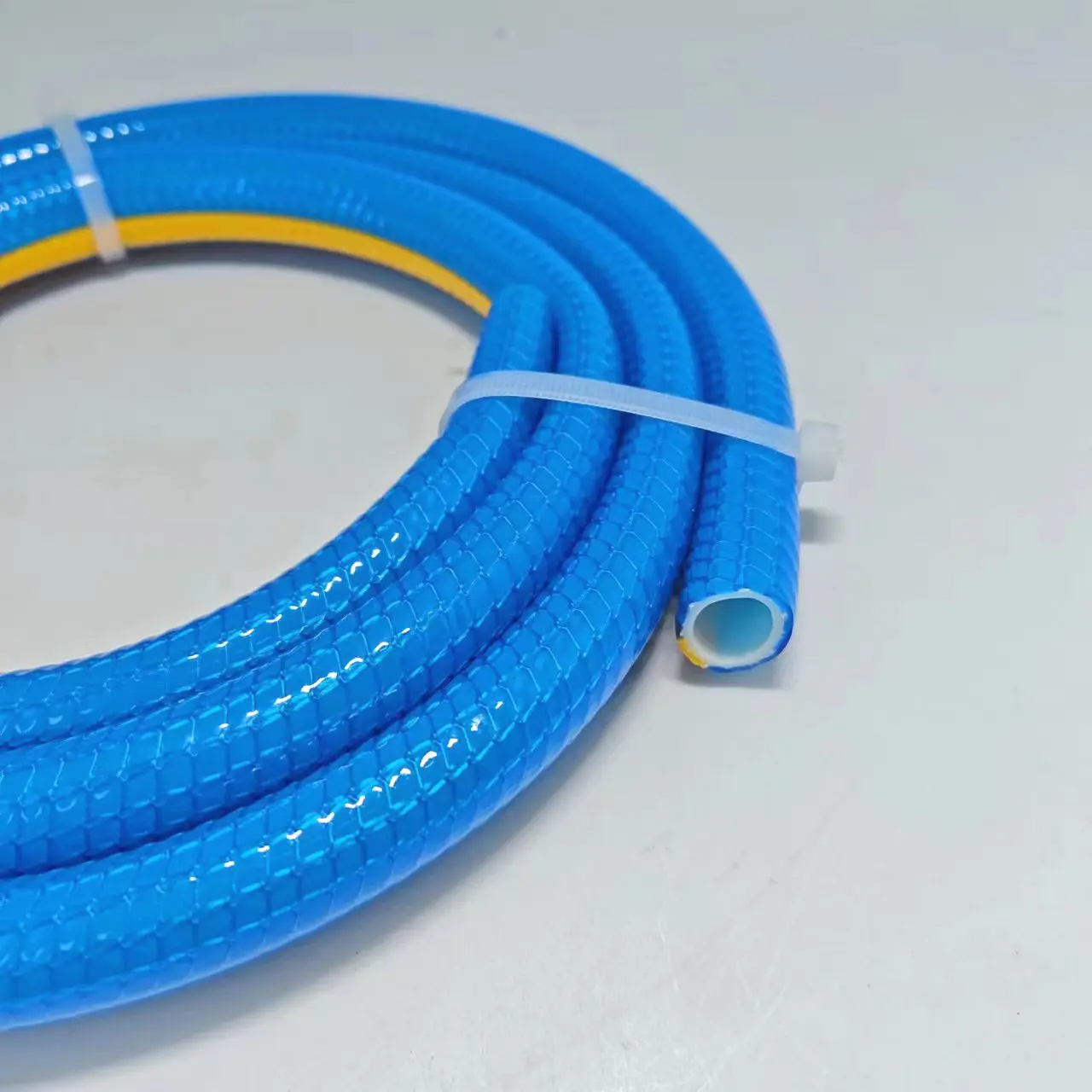
Advantages of PVC Garden Hoses
PVC garden hoses are widely favored for several key benefits:
Lightweight and easy to use: Compared to rubber hoses, PVC hoses are lighter, making them easier to move and store, especially for frequent use.
Affordable: PVC material is cost-effective, making these hoses budget-friendly for households.
Good kink resistance: High-quality PVC hoses resist tangling, ensuring smoother water flow.
Low maintenance: PVC hoses are resistant to mold growth and easy to clean—just rinse them periodically.
In the Saudi market, due to high demand for home gardening and car washing, the lightweight and economical nature of PVC hoses makes them a top choice for many families. During the summer, when hoses are frequently used for watering and cooling, their durability and ease of use are widely recognized.
Limitations of PVC Garden Hoses
Despite their advantages, PVC hoses have some limitations that users should consider:
Limited temperature resistance: Prolonged exposure to extreme heat (e.g., midday Saudi summers) can cause PVC hoses to harden or become brittle.
Moderate pressure tolerance: PVC hoses are not ideal for long-term high-pressure water flow, as they may crack or leak.
Poor cold resistance: In the rare colder winters of northern Saudi Arabia, low temperatures can make PVC hoses brittle.
Susceptible to punctures: Sharp objects like rocks or metal edges in gardens can scratch the hose, so avoid dragging it over rough surfaces.
In Saudi Arabia, where most regions experience high temperatures year-round, users should avoid leaving hoses exposed to direct sunlight for extended periods to slow down aging.
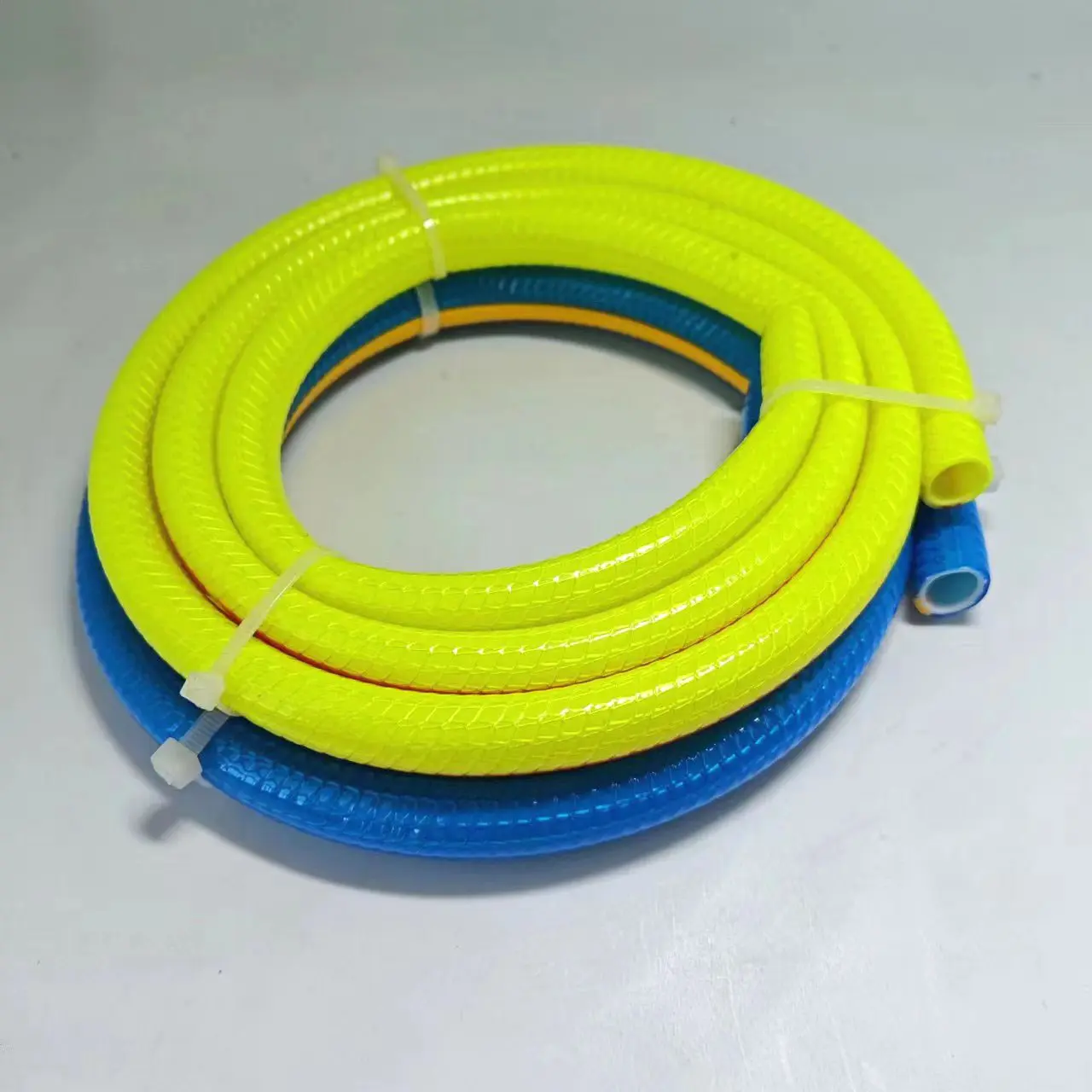
Common Uses of PVC Garden Hoses
| Use Case | Specific Applications |
|---|---|
| Home garden watering | Daily irrigation for yards, flower beds, and lawns, especially crucial in arid regions. |
| Car washing | Many Saudi households own cars, and PVC hoses are lightweight and convenient for washing. |
| Outdoor cleaning | Cleaning patios, outdoor furniture, and floors, as dust and sand accumulation is common. |
| Temporary water transfer | Used in construction sites or events for short-distance water supply (avoid high pressure). |
In Saudi Arabia, where water is a precious resource, many households combine drip irrigation systems with hoses to improve efficiency. PVC hoses, due to their flexibility and low cost, are often used as supplementary irrigation tools.
Tips for Choosing a PVC Garden Hose
When selecting a PVC garden hose in Saudi Arabia, consider the following:
Length: Saudi homes often have large yards, so opt for hoses longer than 20 meters.
Diameter: Common sizes are 1/2-inch and 5/8-inch—the latter provides higher water flow for larger areas.
UV resistance: Choose hoses labeled "UV-resistant" or "sunlight-proof" to withstand Saudi Arabia’s intense sun.
Connector quality: Check for sturdy fittings to prevent leaks—brass connectors are more durable than plastic ones.
Given Saudi Arabia’s hot summers, reinforced PVC hoses are recommended for better durability.
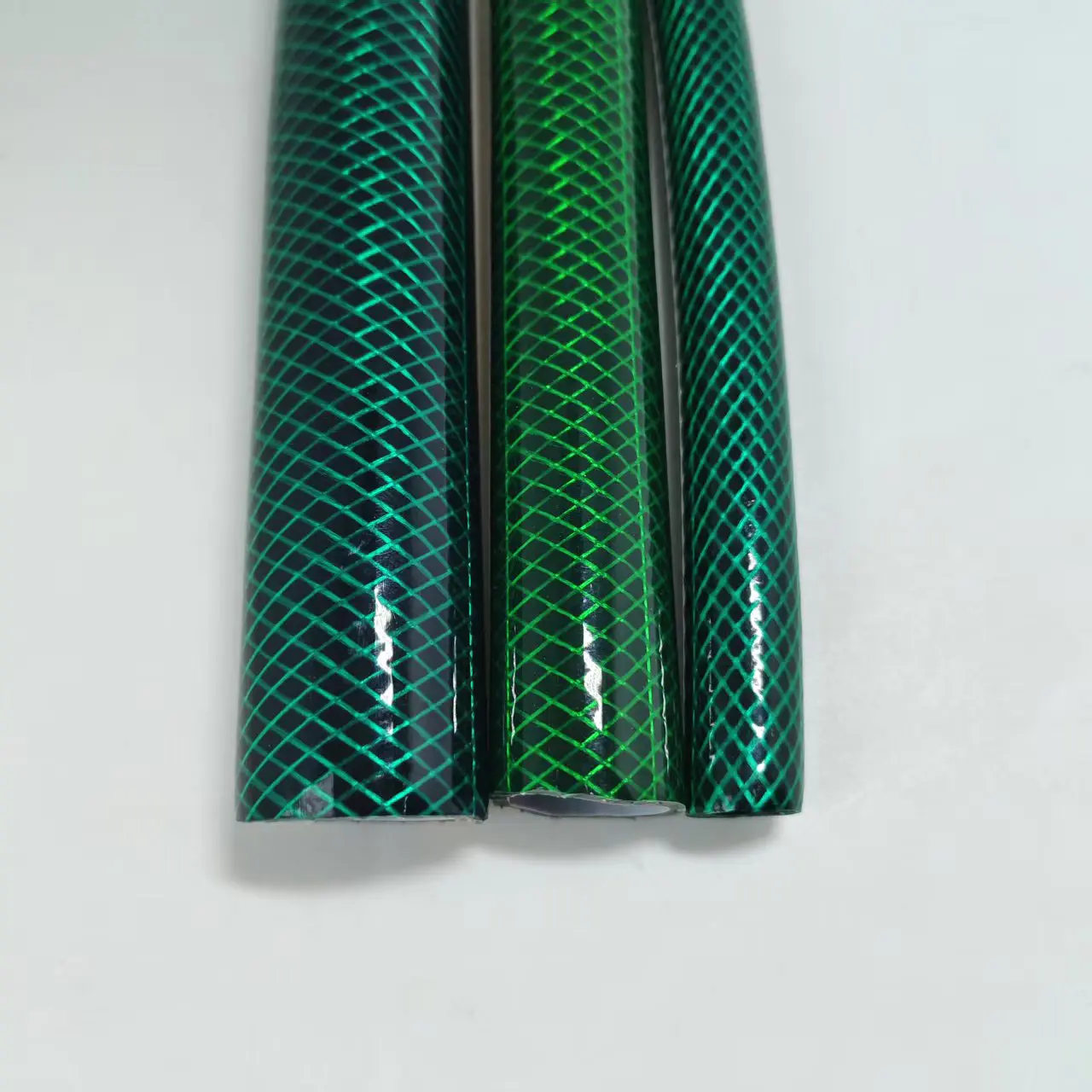
Maintenance and Storage of PVC Garden Hoses
Proper care extends the lifespan of PVC hoses, especially in Saudi Arabia’s harsh climate:
Drain after use: Prevent water retention, which can accelerate aging in high heat.
Avoid sun exposure: Store hoses in shaded areas like garages or storage rooms.
Regular inspections: Check for cracks, stiffness, or loose fittings, and replace damaged parts promptly.
Proper coiling: Use hose reels or racks to prevent kinks and tangles.
Since Saudi households use hoses frequently in summer, inspect them quarterly to ensure optimal condition.
PVC Garden Hoses in the Saudi Market
Saudi Arabia’s climate and lifestyle drive strong demand for PVC garden hoses:
High household adoption: Most Saudi families own detached homes with gardens, making hoses essential.
Seasonal demand spikes: Sales peak in summer (May–September) when water usage surges.
Local preferences: Saudi consumers prioritize flexibility and heat resistance—some imported hoses fail due to climate incompatibility.
Competition from alternatives: Though rubber hoses are more durable, PVC hoses dominate due to affordability.
In Saudi Arabia, hoses are sold in hardware stores, home improvement outlets, and e-commerce platforms, with consumers favoring cost-effective and durable options over premium features.
Conclusion
PVC garden hoses, with their lightweight, economical, and user-friendly design, are a staple in Saudi households. In hot and dry climates, proper selection and maintenance are crucial. This guide aims to help users better understand PVC hoses and make informed choices in the Saudi market.
